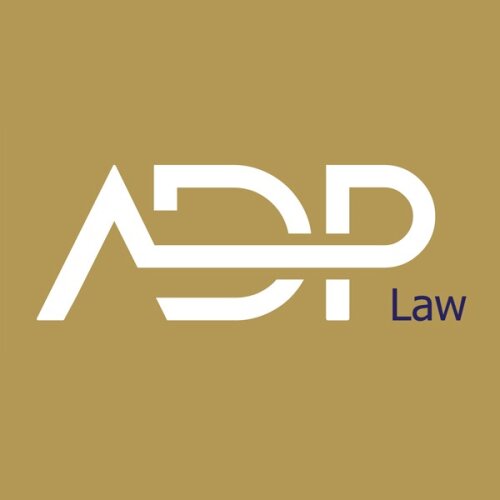Best Acquisition / Leveraged Finance Lawyers in Saudi Arabia
Share your needs with us, get contacted by law firms.
Free. Takes 2 min.
Or refine your search by selecting a city:
List of the best lawyers in Saudi Arabia

About Acquisition / Leveraged Finance Law in Saudi Arabia
Acquisition and leveraged finance involves providing funds for the purchase or takeover of companies, often using borrowed money where the assets of the company being acquired serve as collateral. In Saudi Arabia, such transactions are increasingly common due to the Kingdom’s economic diversification and growth of private sector businesses. The legal landscape is regulated by a combination of Islamic finance principles, local company laws, and international financing standards. Understanding how acquisition and leveraged finance operates within this framework is crucial for both buyers and lenders involved in Saudi transactions.
Why You May Need a Lawyer
Legal expertise is invaluable in acquisition and leveraged finance transactions because of their complexity and the significant financial, regulatory, and reputational risks involved. You may need a lawyer if you are:
- Acquiring or selling a business in Saudi Arabia, especially if the transaction involves significant debt financing.
- Structuring a leveraged buyout or other financial arrangement utilizing borrowed funds.
- A foreign or local bank, or another financial institution, providing finance for an acquisition in Saudi Arabia.
- Drafting, negotiating, or reviewing loan documentation, security agreements, or related contracts.
- Assessing and mitigating potential regulatory hurdles, including approvals from Saudi regulators like the Ministry of Commerce or the Capital Market Authority.
- Ensuring Shariah compliance of the financing arrangement.
- Navigating disputes arising from acquisition or financing agreements.
- Managing due diligence on Saudi entities involved in the transaction.
A lawyer can guide you through these complex procedures and help safeguard your interests.
Local Laws Overview
Acquisition and leveraged finance in Saudi Arabia is shaped by several key legal frameworks, including:
- Companies Law - Governs the formation, operation, acquisition, and merger of companies in Saudi Arabia.
- Banking Control Law - Regulates the activities of banks and financial institutions, including rules on lending and collateral taking.
- Secured Transactions and Security Interests - Saudi law permits various forms of security such as mortgages and pledges. The Collateral Registry provides a legal framework for asset-based lending.
- Capital Market Law - Overseen by the Capital Market Authority, this law regulates public offers, private placements, and securities used in acquisition finance.
- Shariah Compliance - All financial transactions, including acquisitions and leveraged financings, must comply with Shariah law, which restricts interest-based lending and speculative activities.
- Foreign Investment Law - Sets out rules and approval processes for foreign investors and cross-border financing transactions.
- Merger Control - The General Authority for Competition reviews and approves mergers to prevent anti-competitive outcomes.
Legal procedures in acquisition and leveraged finance transactions will often include regulatory approvals, due diligence, drafting of bespoke contracts, and adherence to Shariah restrictions.
Frequently Asked Questions
What is leveraged finance in the context of Saudi Arabia?
Leveraged finance refers to borrowing funds to finance the acquisition of a business, often using the assets of the acquired company as security for the loan. This is structured in line with Saudi regulations and Shariah principles.
Are leveraged buyouts common in Saudi Arabia?
While leveraged buyouts are less common than in other markets, they are growing in frequency as private equity and cross-border investments in Saudi businesses increase.
Are there Shariah-compliant structures for acquisition and leveraged finance?
Yes, Saudi law requires all financing, including acquisition finance, to comply with Shariah. Common structures include Murabaha (cost-plus financing), Ijara (leasing), and Mudarabah (profit sharing).
Can a foreign bank provide acquisition finance in Saudi Arabia?
Foreign banks can lend for acquisitions, but they may need to partner with a local institution or obtain necessary licenses. Foreign exchange and repatriation of profits are regulated.
Are there restrictions on taking security over assets in Saudi Arabia?
Security can be taken over certain types of assets, such as real estate and shares, but there are formalities and restrictions. Some assets may require registration or regulatory approval to perfect the security interest.
What is the role of due diligence in acquisition finance transactions?
Due diligence is crucial to identify legal, financial, and operational risks. A thorough assessment of the target company’s contracts, regulatory status, compliance, and financial health is essential before proceeding.
How are acquisition financings documented and enforced in Saudi Arabia?
Documentation typically involves comprehensive financing and security agreements, often governed by Saudi law or a combination of Saudi and international law. Enforcement of security is subject to the Saudi legal process, which can differ from practices in other jurisdictions.
Do acquisition finance transactions require regulatory approvals?
Yes, certain transactions need approvals, especially when they involve regulated sectors, crossing foreign ownership thresholds, or raise competition law concerns.
What happens if there is a dispute in an acquisition financing transaction?
Disputes may be resolved through litigation in Saudi courts or, if agreed, through arbitration. The enforcement of foreign judgments and arbitral awards is possible but subject to Saudi legal requirements.
What are the key risks in leveraged finance transactions in Saudi Arabia?
Key risks include non-compliance with Shariah principles, failure to perfect security, regulatory uncertainties, and challenges in enforcing rights in case of default.
Additional Resources
- Ministry of Commerce: Main regulator for companies and commercial activities. - Capital Market Authority: Regulates securities, public and private offerings, and market conduct. - Saudi Central Bank (SAMA): Supervises banking and finance institutions. - General Authority for Competition: Reviews mergers and anti-competition issues. - Saudi Bar Association: Can help you find qualified legal professionals. - Saudi Centre for Commercial Arbitration: Provides alternative dispute resolution services. Professional advisors, legal publications, and local law firms also provide valuable information and support.
Next Steps
If you are considering or are involved in an acquisition or leveraged finance transaction in Saudi Arabia, start by gathering all relevant documentation and outlining your goals. Seek early advice from a qualified lawyer with experience in Saudi corporate and finance law to assess your options, regulatory obligations, and risk profile. Prepare for due diligence and regulatory approval processes which may take time. Consulting with accountants and financial advisors familiar with Saudi business practices is also recommended. Taking these steps will help you navigate the legal and commercial complexities involved, protect your interests, and increase the likelihood of a successful outcome.
Lawzana helps you find the best lawyers and law firms in Saudi Arabia through a curated and pre-screened list of qualified legal professionals. Our platform offers rankings and detailed profiles of attorneys and law firms, allowing you to compare based on practice areas, including Acquisition / Leveraged Finance, experience, and client feedback.
Each profile includes a description of the firm's areas of practice, client reviews, team members and partners, year of establishment, spoken languages, office locations, contact information, social media presence, and any published articles or resources. Most firms on our platform speak English and are experienced in both local and international legal matters.
Get a quote from top-rated law firms in Saudi Arabia — quickly, securely, and without unnecessary hassle.
Disclaimer:
The information provided on this page is for general informational purposes only and does not constitute legal advice. While we strive to ensure the accuracy and relevance of the content, legal information may change over time, and interpretations of the law can vary. You should always consult with a qualified legal professional for advice specific to your situation.
We disclaim all liability for actions taken or not taken based on the content of this page. If you believe any information is incorrect or outdated, please contact us, and we will review and update it where appropriate.
Browse acquisition / leveraged finance law firms by city in Saudi Arabia
Refine your search by selecting a city.














